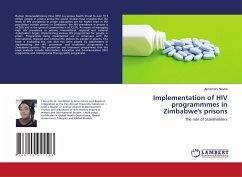The study sought to: examine training, monitoring and support provided to NSNP stakeholders in Pinetown district in South Africa. Underpinned by the pragmatic research paradigm, the study followed a mixed methods research approach which utilised a convergent parallel research design. A random sample of 108 learners and purposive samples of 32 different stakeholders participated in the study. Descriptive statistics were used to analyse quantitative data, while qualitative data were categorised into themes which were presented in tables and text. The two forms of data were merged at the interpretation phase through triangulation of results. The study found that some of the key stakeholders of NSNP were not adequately supported and trained, and that monitoring was only done regularly by the teacher coordinators. District field officers lacked adequate expertise to train stakeholders. Training stakeholders and early payment of the suppliers could significantly improve learners' benefit from the programme. The study's proposed framework of implementation of the school nutrition programme recommends ways to improve the implementation process.








